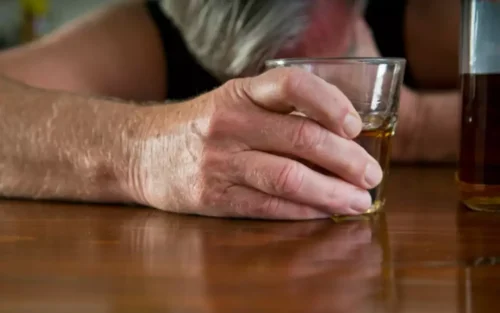How Bad Is Alcohol in Skincare, Really? The Science video with KindofStephen

Alcohol dehydrates and inflames the skin, and causes premature aging. Chronic misuse can lead to conditions such as rosacea, psoriasis and acne, and more serious health concerns such as skin cancer. However, some effects of chronic, excessive alcohol use on the skin may not disappear so quickly; for example, deep lines and wrinkles caused by chronic dehydration might soften, but are likely to remain. Ethanol, a by-product of alcohol metabolization, has been reported to vasodilate or expand blood vessels. With chronic alcohol consumption, these blood vessels become permanently dilated, leading to visible spider veins. Dehydration caused by chronic alcohol use may lead the skin to overproduce sebum, the naturally occurring oil in your skin.
Which alcoholic drinks are the worst for your skin?
In the clinical hand rub studies, again – skin barrier disruption doesn’t seem to be a big issue. In vitro, on isolated skin samples, enzymes that are important in skin shedding and production of lipids can be disrupted by ethanol, so they don’t work as well. If this occurs in skin, then the stratum corneum (responsible for most of the skin’s barrier function) could work less effectively. However, when ethanol is applied to skin, like in a skincare product, it evaporates. There are why is alcohol bad for your skin lots of in vitro studies where the effects of alcohol on isolated cells or isolated skin samples were studied.
When to avoid alcohol in skincare
But because it carries potential side effects like redness, irritation, dryness, and purging, you should either stay away or approach with caution. It’s no secret that fragrance is a common trigger for rosacea and can cause redness and sensitivity. Secondly, the process of extracting witch hazel requires the plant to be distilled in alcohol; the bad alcohol. So it’s drying for the skin, which may be good for oily skin but not so for dry skin. Alcohol Denat is ethanol mixed with additives to make it non-drinkable.
- It’s another drying ingredient, which is never pleasant for rosacea sufferers.
- Most of the time, it’s best to leave these ingredients out of your skincare routine.
- Alcohol exacerbates this chronic inflammatory condition by drying out the skin, disrupting the barrier, and increasing inflammation.
- Any minimal health benefits of red wine don’t compare with the overwhelming benefits of not drinking at all.
- Current research points to health risks even at low amounts of alcohol consumption, regardless of beverage type.
COSMETIC AESTHETICS
- A safer option to get rid of acne when you have rosacea is sulfur in creams or spot treatments.
- « Including supplements into your diet can encourage regeneration of cells which is often blocked if excessive drinking takes place, » says Dr Liakas.
- Learn how to reverse the damage with some guidance from the experts.
- SD alcohol 40 can often be found in soaps and hand sanitizers labeled as “antimicrobial” because it has strong bactericidal and fungicidal activity.
- Dermatologists can help you understand your skin type and tailor a skincare routine based on your specific needs.
- They dry the skin, cause irritation and can trigger rosacea flare-ups.
However, the drying or dehydrating effect on the skin can be seen in Substance abuse products that contain a high concentration of alcohol such as astringent toners. These products, fortunately, are relatively out of fashion, mainly for the reason that they are often drying. So, it is best, particularly if you have dry or dehydrated skin to avoid products such as astringent toners. Alcohol, as you will probably be aware, is a great antibacterial ingredient. This is why it is often used in hand sanitizers, alcohol swabs, and household cleaning products.

Although alcohol may lull you to sleep at first, it reduces the amount of time you spend in REM sleep and causes sleep disruptions. Meaning it’s very difficult to get a good night’s rest after heavy drinking. Dark circles underneath the eyes are often the first place where signs of fatigue manifest. A moderate amount of alcohol from time to time is unlikely to cause lasting skin damage, but even one night of drinking can cause short-term effects like puffiness and bloating. Whole grains, lean proteins, healthy fats, and loads of fresh fruits and veggies are always a good idea, especially when you know you’ll be drinking. Any minimal health benefits of red wine don’t compare with the overwhelming benefits of not drinking at all.
- Some serums include alcohol to help ingredients like vitamin C or retinol absorb quickly.
- Long-term, nobody is immune to the effects of alcohol,’ says Dr Injibar.
- “Alcohol is known to dehydrate the skin, depriving it of the moisture and nutrients it needs to keep our complexion looking radiant, supple and youthful, » says Dr Rita Rakus, Cosmetic Doctor.
- Damaged DNA can cause a cell to grow out of control, which results in cancerous tumors.
- Methyl alcohol, also known as methanol, is toxic and should be avoided at all costs.
Responses